How Teresa Tepania-Ashton’s leadership in the corporate sector stems from whānau
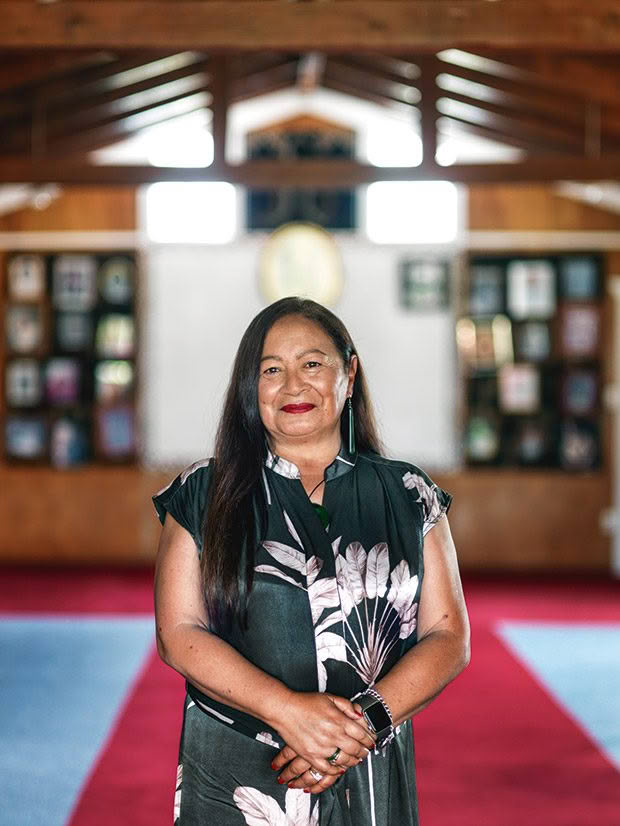
The ability to be true to her identity has helped Teresa Tepania-Ashton to succeed in corporate and tribal leadership roles.
Words: Amokura Panoho Photos: Jane Ussher
PEPEHA
I te taha o tōku papa
Ko Taratara te maunga
Ko Taitokerau te Whare Hui
Ko Waihapa te Marae Ātea
Ko Popoti, ko Puke karaka ngā awa
Ko Whangaroa te Moana
Ko Ngāti Rangimatamoemoe te hapū
Ko Ngāti Kahu ki Whangaroa te iwi
Ko Mamaru te waka
Ko Parata te tangata
I te taha o tōku māma
Ko Te Ramaroa te maunga
Ko Mātai Aranui te Marae
Ko Whirinaki te whenua
Ko Hokianga te moana
Ko Te Hikutu te hapū
Ko Ngāpuhi te iwi
Ko Ngatokimatawhaoroa te waka
Ko Nukutawhiti te tangata
Ko Teresa Tepania-Ashton tōku ingoa
Ko Sol Ashton te ingoa o tōku hoa rangatira
E toko toru o ngā tamariki, ko Amanda, ko Patricia, ko Toronge
E toko rua o ngā mokopuna, ko Alina, Ko Te Whatuhaukura
On my father’s side, my mountain is Taratara
Taitokerau is the meeting house, Waihapa the marae
Popoti and Puke Karaka my rivers
Whangaroa my sea
Ngāti Kahu ki Whangaroa my tribe
Mamaru my waka and Parata my ancestor
On my mother’s side, Te Ramaroa is my mountain
Mātai Aranui my marae, Whirinaki is my place
Hokianga my sea, Te Hikutū my hapū, Ngāpuhi my tribe
Ngatokimatawhaoroa my waka and Nukutawhiti my ancestor
Teresa Tepania-Ashton is my name
My husband is Sol Ashton (hoa rangatira, nō Ngāti Whanaunga raua ko Te Rarawa) and we have three children, Amanda, Patricia and Toronge
And two grandchildren, Alina and Te Whatuhaukura
WHAT IS YOUR PRIORITY FOCUS FOR YOUR PEOPLE?
The settlement process for our iwi, Ngāti Kahu ki Whangaroa, has been difficult. I remember how much it occupied the time of my father Heta Tepania. We often traveled from our home in Auckland to attend hui at our marae Waihapa near Kāeo in the Far North, where he would share his tribal knowledge.
Our history in Northland establishes that we were initially coastal people pushed inland towards our maunga (mountain), Taratara, from the prime real estate of the Whangaroa peninsula and harbour. The Treaty of Waitangi settlement of 2015 acknowledged the Crown’s actions had alienated us from our lands. A cultural redress package vested 15 sites (valued at approximately $20 million), including Stony Creek Station and a cultural fund to manage reserves on the Kowhairoa Peninsula. There was also a small financial redress of $6.2 million.
The Kahukuraariki Trust was established in 2017 as the post-settlement governance entity, and just over a year ago, I inherited the chair from Dr Ella Henry. Our settlement hasn’t been without controversy, but my priority is preparing for full management of our land resources.
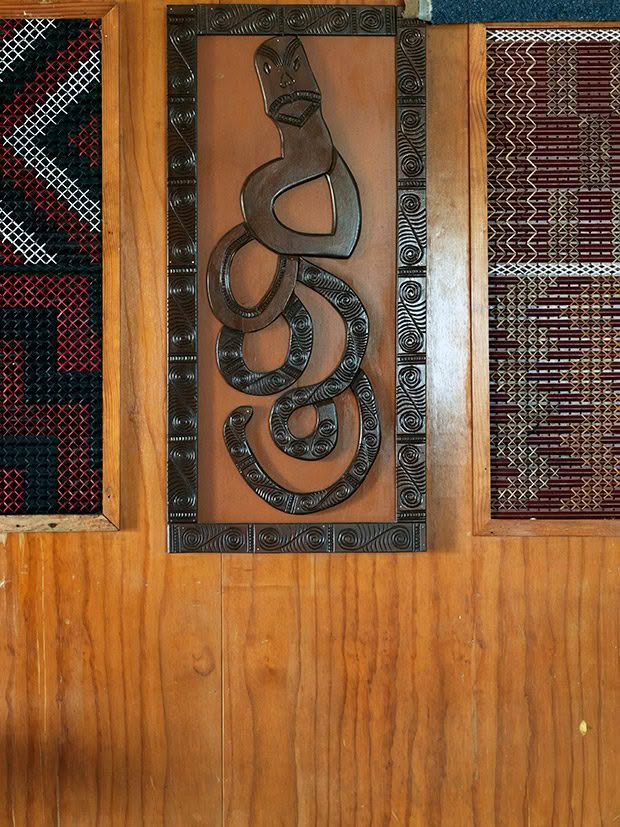
My banking experience means we have a strong objective and investment policy enabling us to concentrate on two main issues: ensuring our history truly reflects our relationship with our whenua (land) pre-colonial settlement to now; and creating pathways to jobs and training, either through forestry, oyster farming, housing development and other opportunities that emerge from our research projects.
I can count on one hand the number of kaumātua (elders) we have left; collating their stories and their perspective is very important to us.
WHAT IS YOUR PATH AND EXPERIENCE IN THE CORPORATE SECTOR, AND HOW DID IT BENEFIT YOU?
One of the most advantageous things about being Māori is that we aren’t just an individual but an extension of our whānau (family) hapū (subtribe) and iwi (tribe). That provides us with a natural pathway to hook in and out of our Māori world and then participate in wider society, locally and globally.
That’s how I embraced the corporate banking environment. But my beginnings were quite unusual as I didn’t like school. As soon as I got school certificate, I started work at Niro Atomizer, a Danish-owned engineering business based in Parnell, in a low-level administration job to help support our family. I don’t like disorder, so immediately I started to tidy up their office systems. By the time I was 19, I was traveling to their head office in Denmark to improve the systems there.
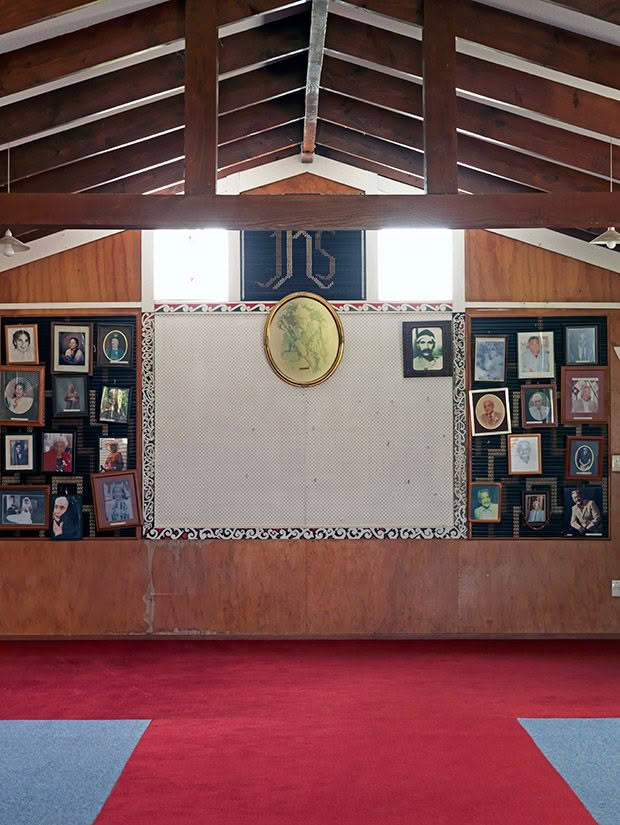
In those days, few people traveled overseas for work and the first two times I left the country, I had 50-odd whānau (family) at the airport to farewell me. We took over the bar singing and drinking, celebrating the occasion. In the end, I moved to Denmark for two years with my husband. He was my boyfriend but my father insisted I marry him before leaving.
When we transferred back, I then moved into corporate banking with Citibank. My first boss was Swedish, and I was fluent in Danish, so we got on well. Later, under the mentorship of the chief executive, Sandy Maier, I advanced to become vice-president, pioneering global transactional banking.
Going from an assistant to a VP in corporate banking made me realize that I can do anything. It also gave me the impetus to think, ‘Why can’t I apply these skills and ability for my own people?’
WHO HAVE BEEN THE KEY INFLUENCES IN YOUR LIFE?
My father worked three jobs every day for a long time so that he could start his own business. He was a bushman before moving to Auckland, so he started up a tree-felling business. His first clients lived along Remuera Road.
One day, he walked up the street telling them what was wrong with their trees, hedges and gardens, and they paid him in cash. Doing cash jobs gave him the capital start-up for his business, where he would end up employing his brothers, cousins, nieces and nephews, even his children.
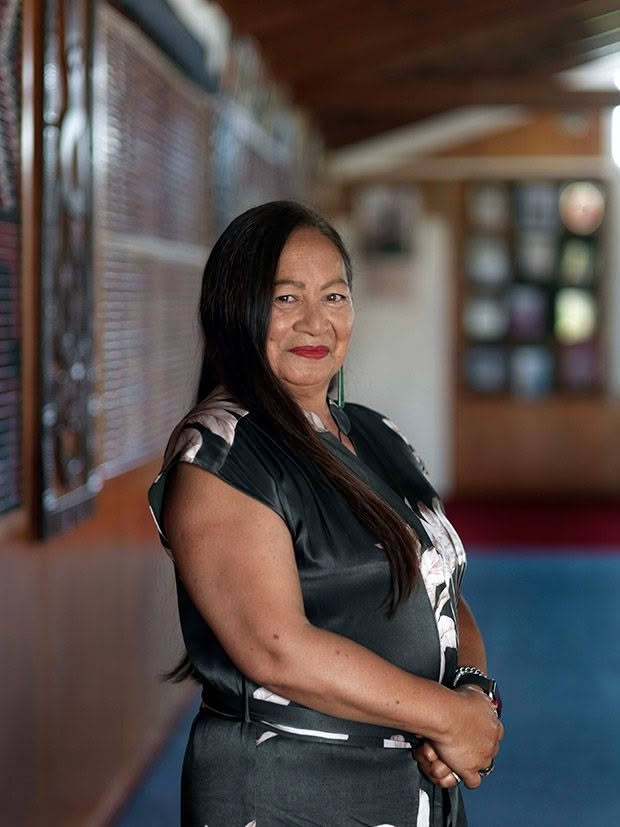
From a young age, I also helped my mother (Emma Wikaira) in the office, writing out invoices by hand until Dad brought me a typewriter when I was 12. Working now for Māori Women’s Development Incorporation is like coming back to my roots — supporting family businesses.
Sandy Maier, a well-known independent director and chairman in financial circles, who recently retired from Ngāi Tahu Holdings, has been a great mentor over the years. He really values Māori identity and culture, believing in my brand of leadership, which is strategically results-oriented, empowering of others and optimistically innovative.
It took seven years for my husband Sol to agree that once we had children, the one earning the most would remain working while the other would raise our family. Inevitably, our family has been his life’s mission, and I am incredibly fortunate to have had his enduring strength.
POST-SETTLEMENT, HOW CAN THE WIDER COMMUNITY SUPPORT YOUR TRIBAL INITIATIVES?
The best way is by partnering — but not a paternalistic partnership; rather understanding the direction iwi want to take. Iwi have a lot to share. In our planning, we acknowledge the past. We are steadfast on gains made today, we know how we want to engage with the future and we are quick adopters of technology.
So we go into strategic relationships with a broader view and expectations as intergenerational investors in our communities, our country. We are more than keen to explore working with our fellow citizens. Information about our present journey and aspirations can be found at kahukuraariki.org.nz
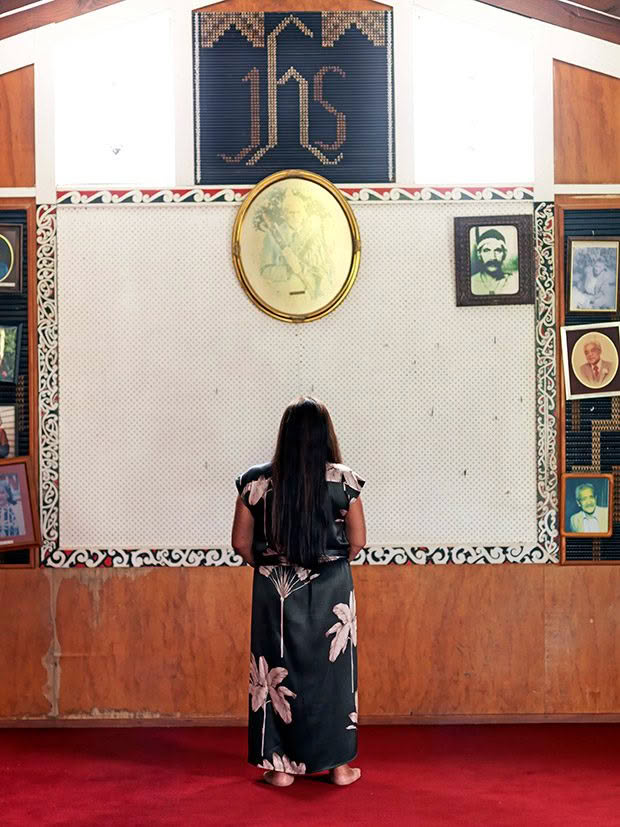
A 12-YEAR INTERNATIONAL CAREER WITH CITIBANK NEW ZEALAND
2004 to 2011 CEO of Te Rūnanga-a-Iwi o Ngāpuhi
2009 Dame Mira Szaszy Alumni (University of Auckland)
2015 and 2016 Finalist, New Zealand Women of Influence
2016 New Zealander of the Year — Local Hero
2016 New Zealand Order of Merit for service to Māori in business
2019 New Zealand representative for the Global Women in Management Programme, Washington
Since 2011 CEO of Māori Women’s Development Incorporated (MWDI), which provides loans and wraparound support for wāhine Māori in business and their whānau
MORE HERE
Lawyer Precious Clark helps enrich lives with Māori culture through training programme Te Kaa
Love this story? Subscribe now!
 This article first appeared in NZ Life & Leisure Magazine.
This article first appeared in NZ Life & Leisure Magazine.
